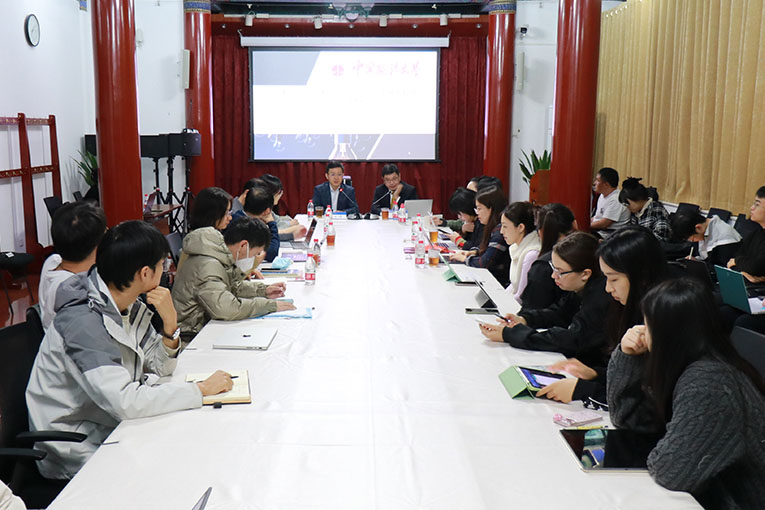On the evening of October 15, 2024, the Institute of International and Strategic Studies (IISS) Peking University (PKU) hosted the 79th session of the "North Pavilion Seminar" lecture series titled "From Foreign Investment Security Review to Outbound Investment Restrictions: U.S. Investment Legal Policies." The lecture was delivered by Prof. Kong Qingjiang, Dean of the School of International Law at China University of Political Science and Law and chaired by Associate Professor Gui Yongtao, Deputy Dean of the School of International Studies and Vice President of IISS, PKU.

Prof. Kong Qingjiang discussed the abovementioned topic and shared insights on the origins, current state, mechanisms, and future developments of the U.S. foreign investment national security review and outbound investment restrictions.
Kong Qingjiang began by providing an overview of the history, mechanisms, and operational model of the Committee on Foreign Investment in the United States (CFIUS). He offered a detailed analysis of the legal and political implications behind CFIUS, tracing its evolution from its establishment in 1975 to the Biden administration. Throughout this period, the U.S. political landscape’s perception of the national security environment has continuously evolved, prompting CFIUS to adapt by introducing new frameworks through legal modification. Of particular significance is Executive Order 14083, issued by President Biden on September 15, 2022. This order explicitly aligns CFIUS’s role, actions, and capabilities with the government’s national security priorities, which include maintaining the United States' technological leadership, safeguarding sensitive data of U.S. citizens, and enhancing the resilience of American supply chains.
Prof. Kong then used the case of ByteDance to illustrate the relevant national security review processes. On one hand, CFIUS may tailor its review standards to specifically target certain Chinese companies. On the other hand, if the outcome of a foreign investment security review fails to mitigate national security risks, the U.S. government can resort to the International Emergency Economic Powers Act (IEEPA) to address any remaining national security concerns. This approach could potentially prioritize national security over other rights protected by law, such as property rights and freedom of speech.
Finally, Prof. Kong elaborated on the evolution and development trends of U.S. outbound investment restrictions. In the context of U.S.-China strategic competition, the U.S. Congress, both political parties, and the White House have reached a consensus on the necessity of establishing outbound investment restriction mechanisms to safeguard national security. CFIUS will intensify scrutiny of unreported transactions and may continue to revise relevant rules in the future. Using the Notice of Proposed Rulemaking (NPRM) issued by the U.S. Department of the Treasury in June 2024 as an example, Prof. Kong interpreted the definitions and scope of related entities, the compliance obligations of U.S. investors for outbound investments, the industrial fields subject to restricted transactions, the regulated transactions and exceptions, and the liabilities associated with outbound investment violations. He also offered a cautious assessment of the future development of the rules.
During the Q&A session, Prof. Kong engaged in discussions with students and faculty, exchanging views on the limitations of foreign investment security review rules, and their implications for aspects such as U.S.-China technological competition, global governance, corporate investments, and future international investment governance mechanisms.(Contributor: Zhao Shuyun)
Editor: Li Fangqi Photographer: Zheng Peijie

